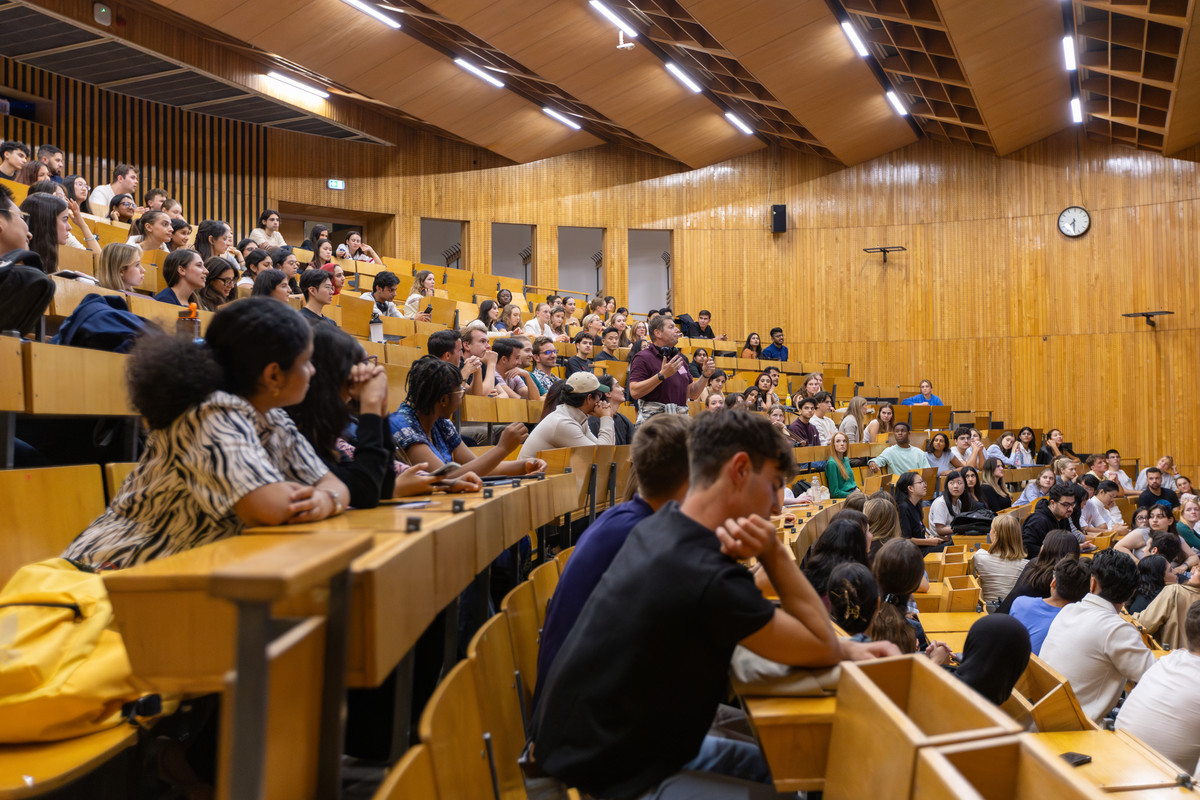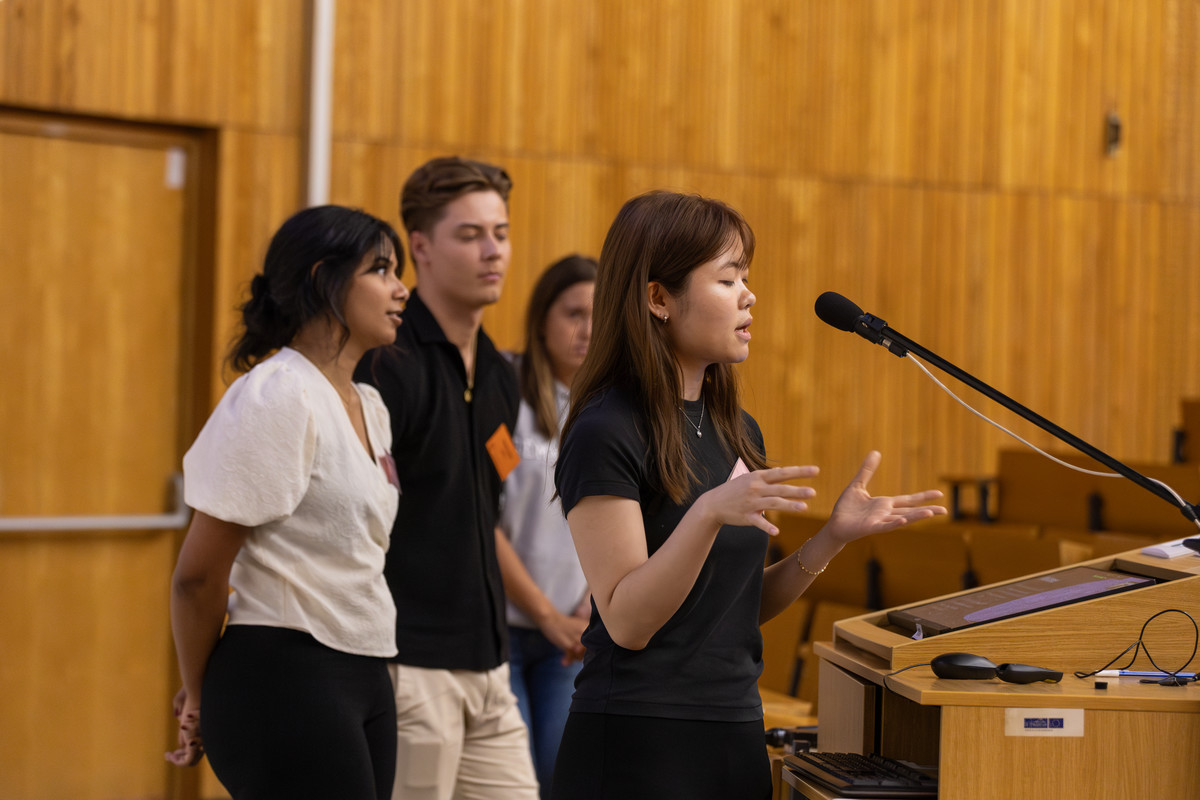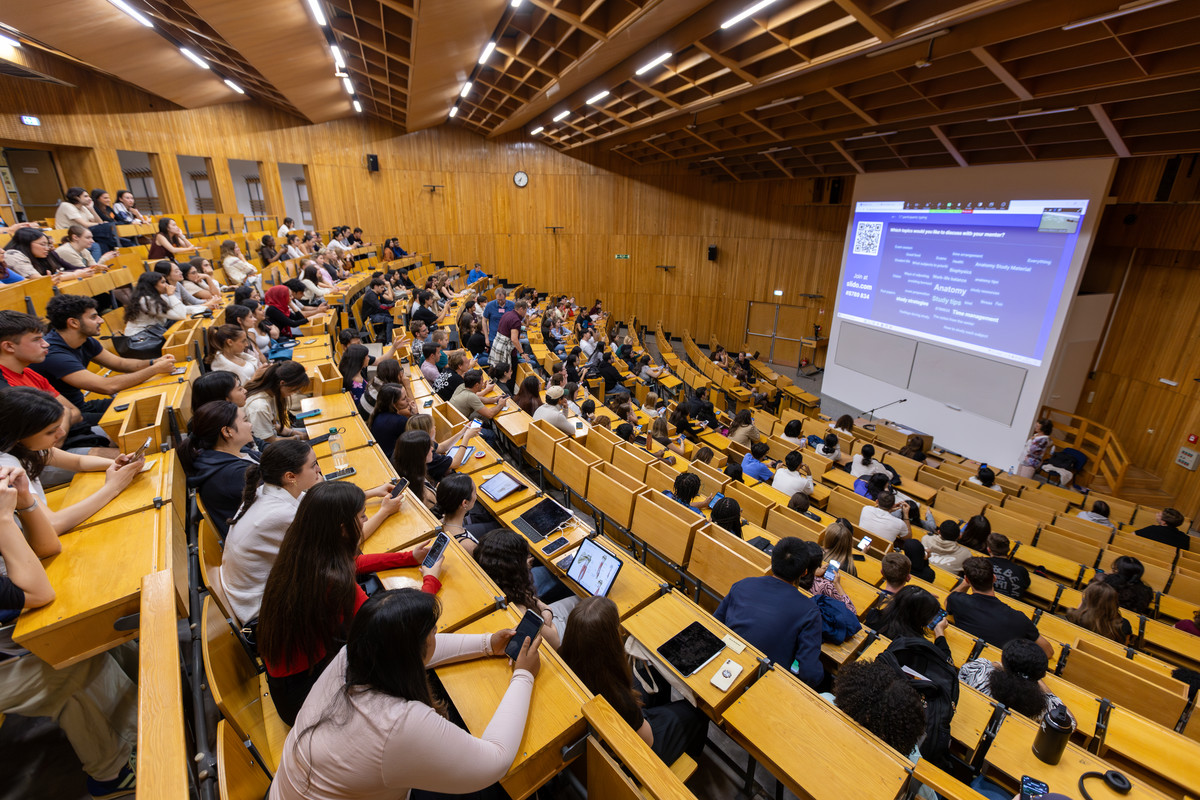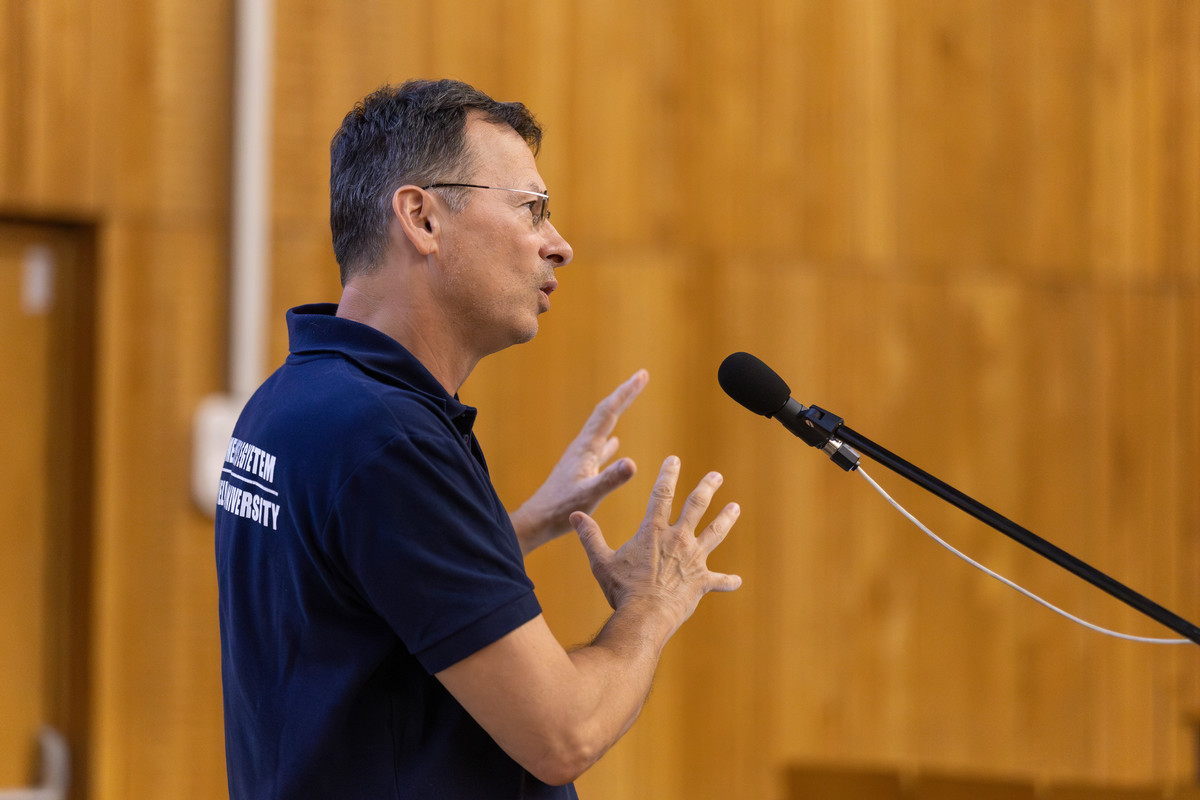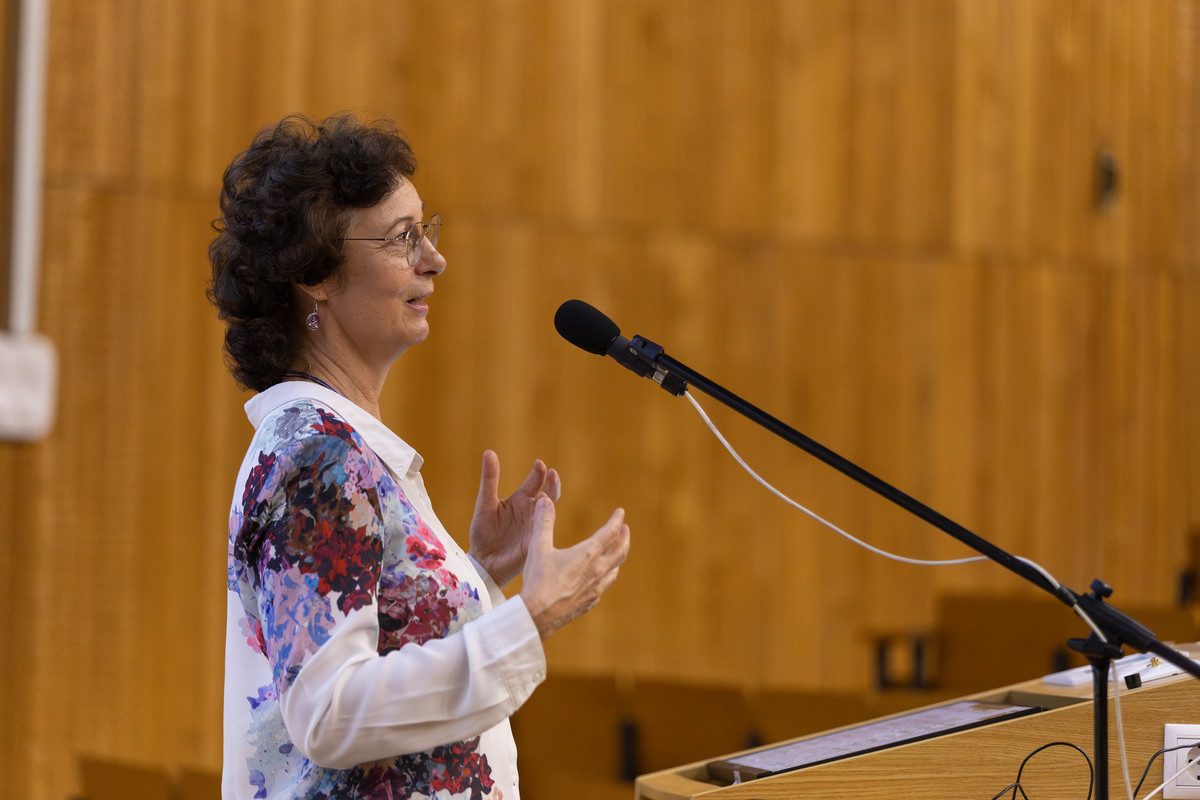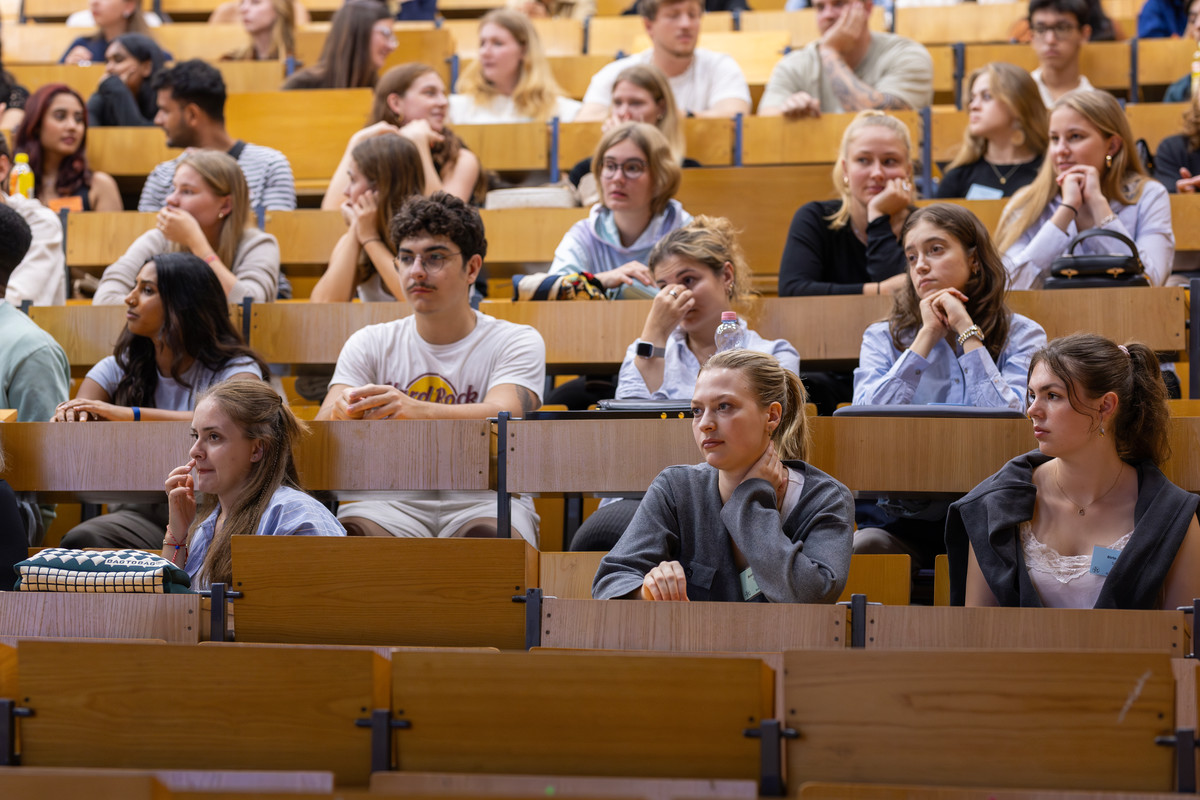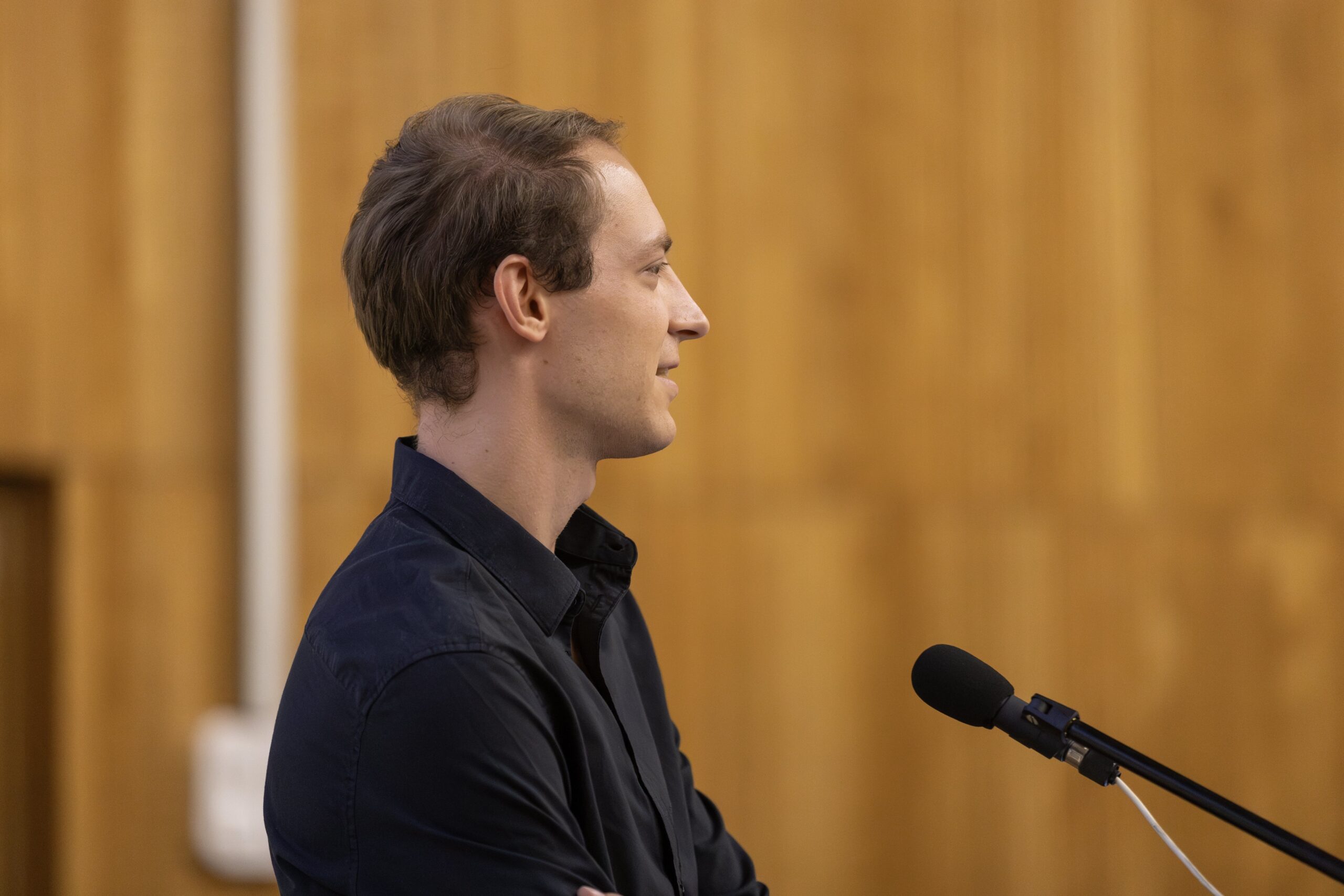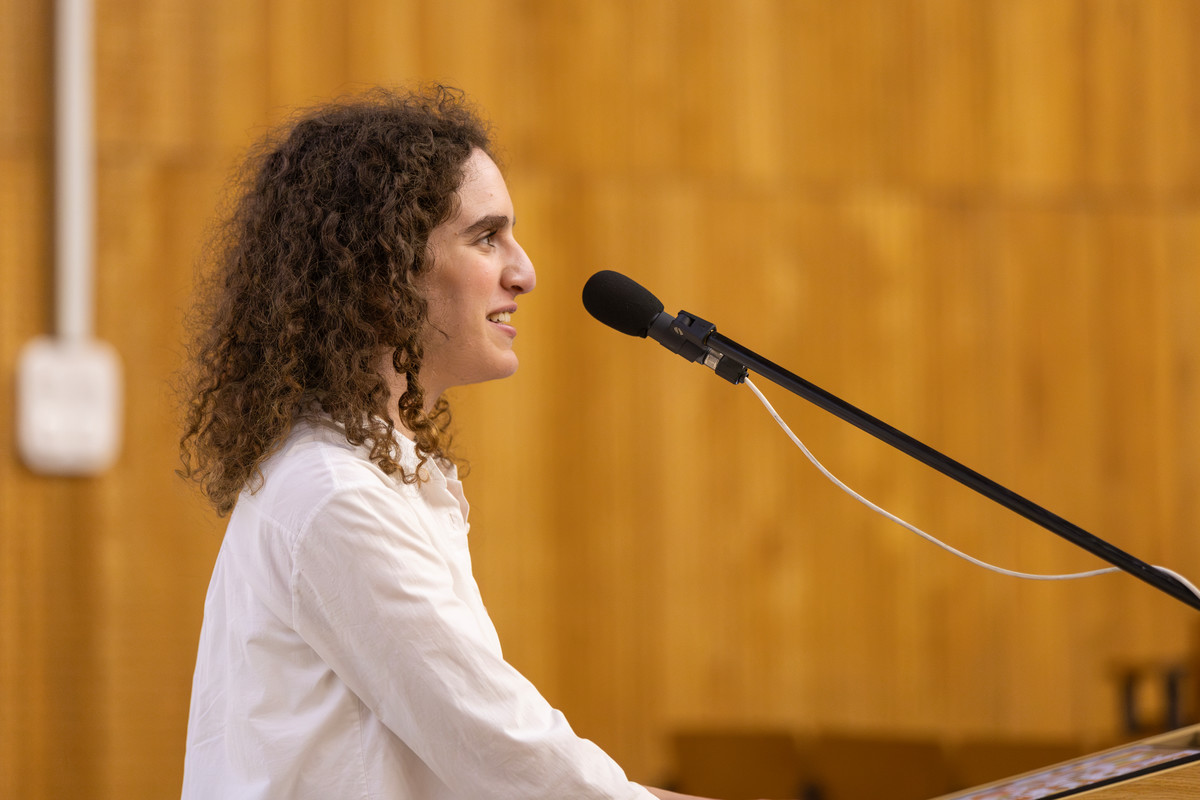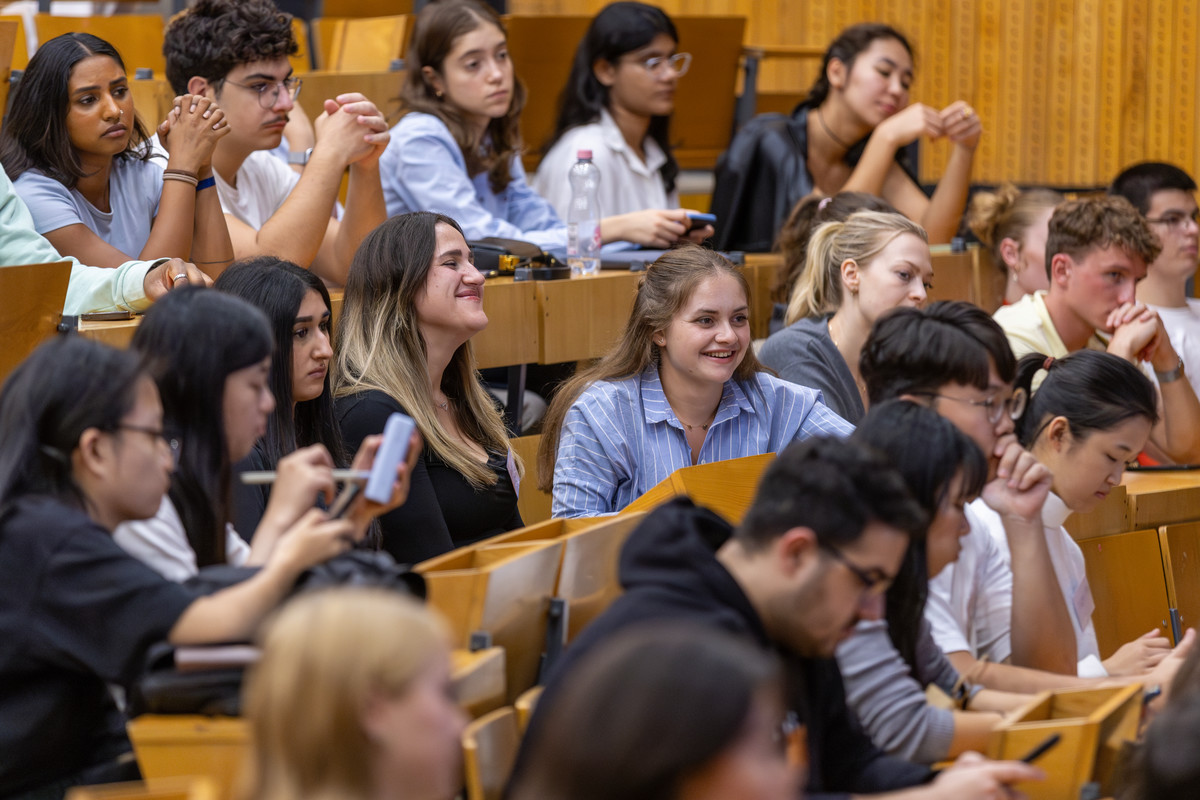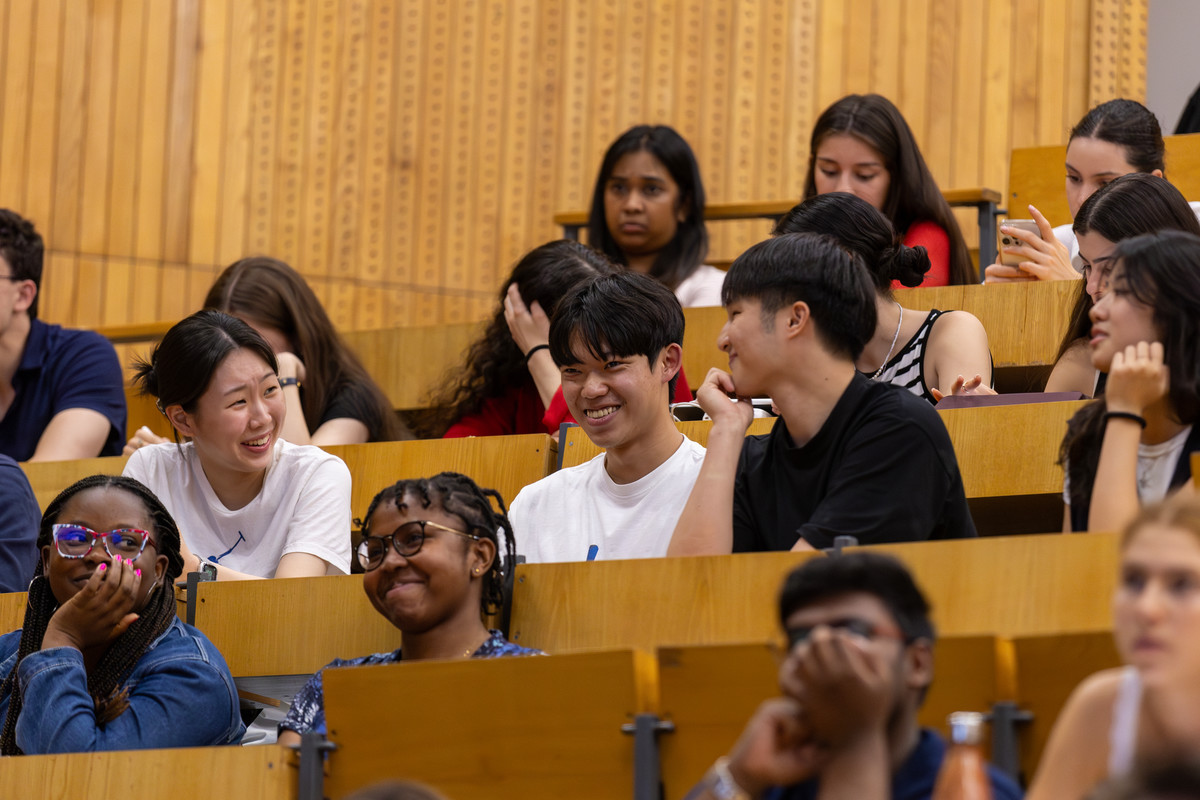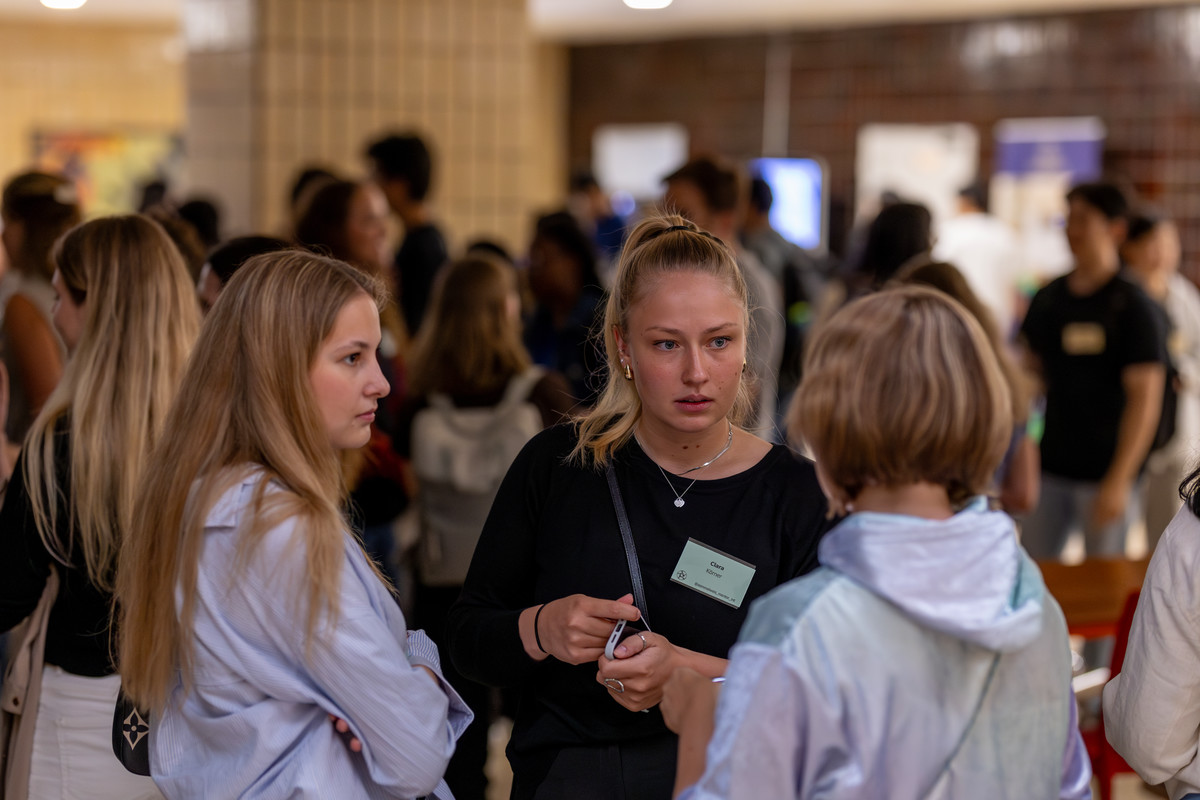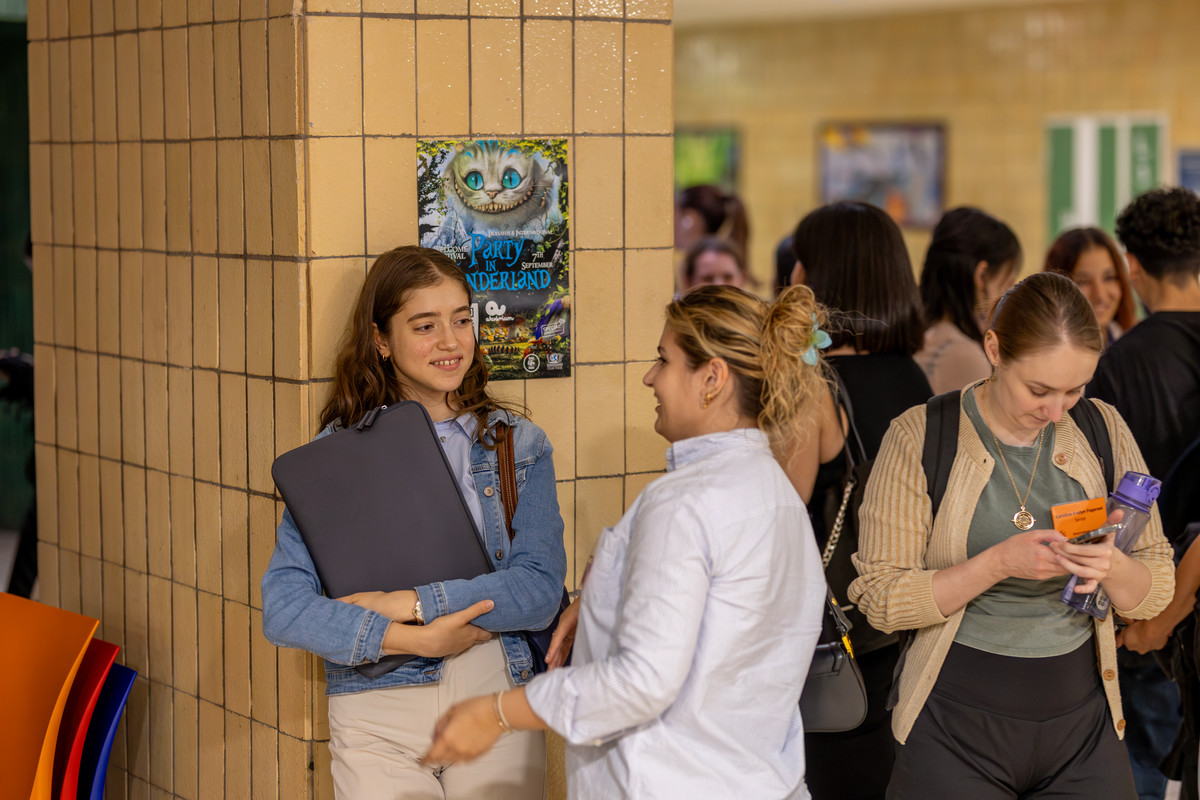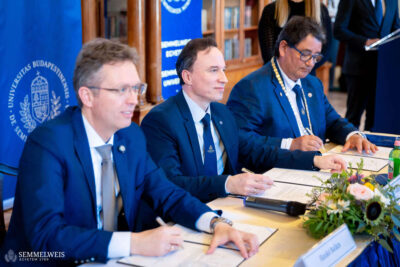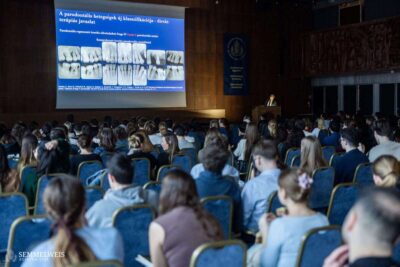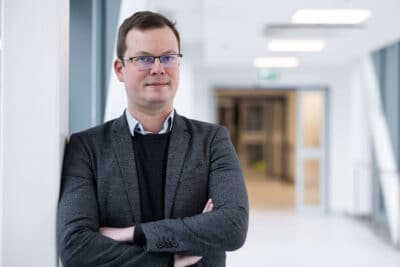The Semmelweis Student Mentoring Program aims to support first-year medical students, guiding them through the transition into university life and fostering personal and academic success. This year, a total of 185 mentees from 52 countries have been paired with 113 mentors. Of these, 136 mentees and 86 mentors are part of the English program, while the German program includes 49 mentees and 27 mentors. The mentors, all third-year or higher medical students, offer guidance and support to help mentees manage the unique challenges of studying medicine abroad.
The program emphasizes peer mentorship, where students share similar experiences, offering advice on stress and time management, as well as social integration. Not only does this help mentees, but mentors also develop essential communication and consulting skills vital for their future medical careers.
This year, the program started with an opening ceremony, where mentors and mentees had the opportunity to get to know each other and the organizers. The event was officially opened by Dr. György Purebl, Director of the Institute of Behavioral Sciences and Vice-Dean of Academic Affairs, who shared the broader vision of the mentoring program. He emphasized that while professors provided invaluable academic knowledge, the best tutors were often senior students, as they possessed the strategic insight needed to navigate courses and academic obligations, knowing which ones required more focus and how to approach them effectively.
The opening address was followed by remarks from key program coordinators, including Dr. Adrienne Stauder, leader of the International Mentoring Program; Márk Havasi, coordinator of the German program; and Sara Molnár, a Board Member of the German program. Alexandra Pop, Kevin Babayigit, and Eden Friedman, International Board Members of the English program, introduced more details about the program. Contributing teachers Bence Döbrössy, Assistant Lecturer at the Institute of Behavioral Sciences; Júlia Kupcsik, Supervisor in the German program; and Dr. Dorottya Árva, one of the founders of the program, also welcomed the participants.
The program continued with board members delivering an inspiring talk on the cycle of education, they emphasized the tradition of passing knowledge through generations, from professors to students, and ultimately to future doctors. Drawing from the Hippocratic tradition, reflected on how each generation mentors the next, ensuring that medical knowledge is not only learned but also cultivated through human connection and care.
As medical students, we have taken an oath, inspired by the Hippocratic tradition, not only to dedicate ourselves to learning and using our knowledge to serve the health and well-being of patients, but also to perpetuate the cycle of education: Professors teach specialists, specialists guide residents, residents mentor interns, and interns support senior students who in turn mentor those who follow, fostering an unbroken chain of knowledge and care. – Eden Friedman
New initiatives: task forces for senior mentors
A significant addition to this year’s program is the introduction of task forces, led by senior mentors. These task forces are designed to offer mentees more than just academic support. With a focus on mental health and community-building, they will organize a variety of activities such as cultural events, study workshops (especially before exams), and fun gatherings outside school hours. Task force leaders Vivienne Seymour, Ririka Tamura, Charles Gates, and Bianka Lamosova, presented their plans, which are aimed at promoting both personal well-being and academic success.
Prioritizing mental health and well-being
A key pillar of the international mentoring program is its focus on promoting mental health and well-being.
For example, the program offers initiatives such as ‘Mental Monday,’ a social media promotion where tips and advice on handling stress, anxiety, homesickness, and academic pressure are shared. These weekly posts aim to provide students with practical tools to manage their mental health, navigate the workload, and stay grounded throughout the semester.
This year’s program builds upon the experiences and feedback from past participants. During the event, Eden Friedman and Sara Molnár shared advice from last year, along with reflections from previous mentees.
Hana Eisenberg, a fourth-year medical student and mentor explained how mentoring had shaped her journey, describing it as a “beautiful opportunity” to pay forward the support and guidance she received during her early years. “It’s important for new medical students to interact with and learn from those who have made it through the first few years. It provides reassurance that they, too, will get through this experience” she said. Hana emphasized the mutual learning experience, noting how mentorship strengthens vital skills like communication and responsibility, essential for their future medical careers. When asked for advice to new mentors, Hana recommended them to “Be open-minded and listen to what your mentees need, but also maintain boundaries and do what’s good for you. It’s a big learning experience for both sides.”
Eden Friedman, Márk Havasi
Photos by István Pintér
